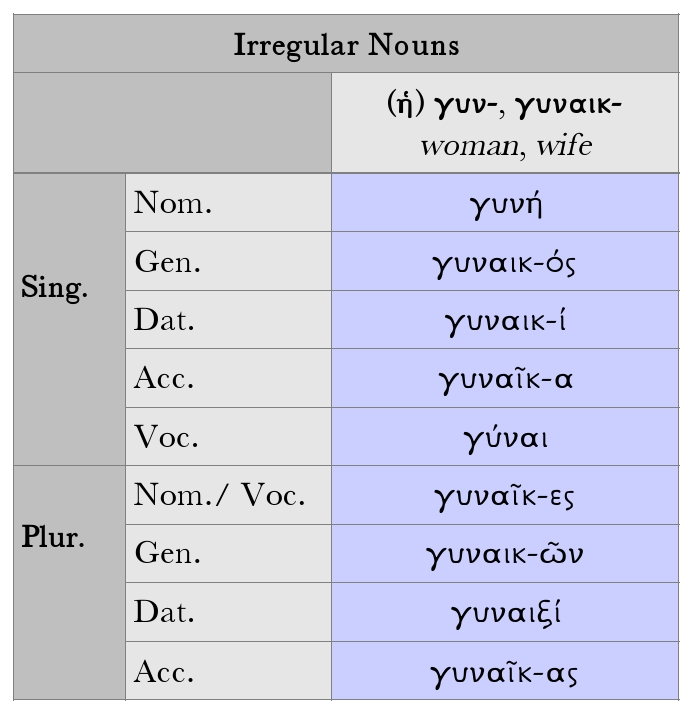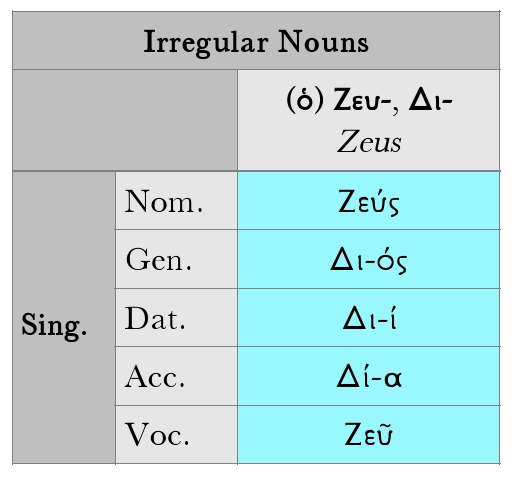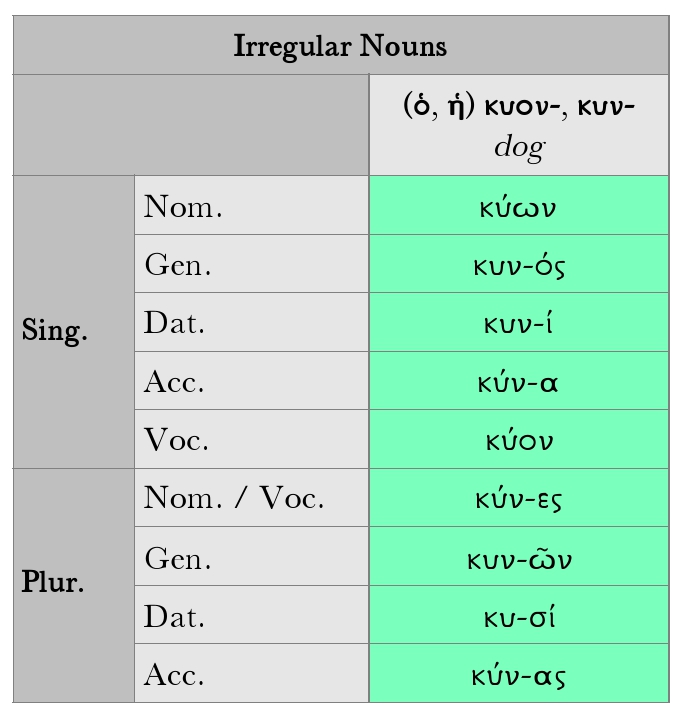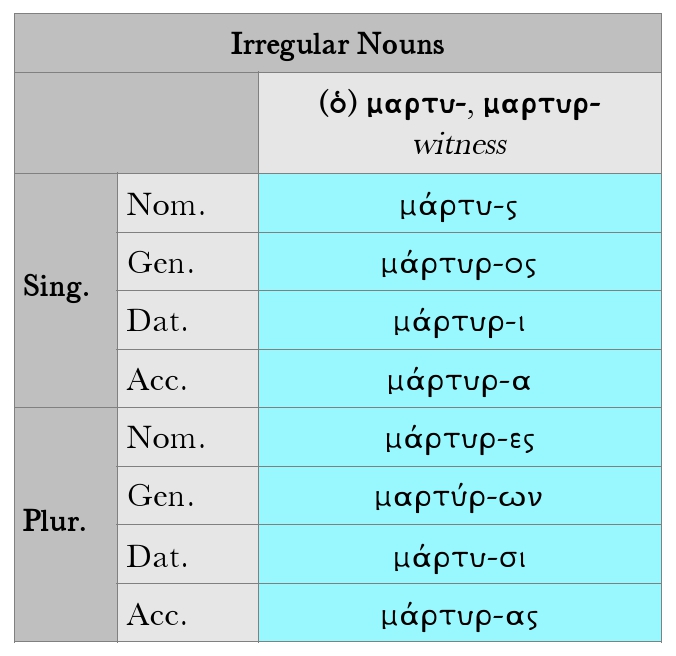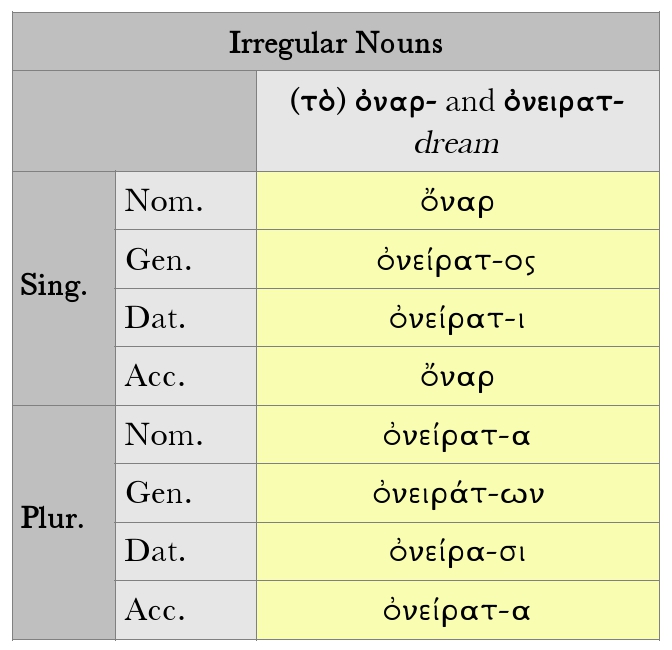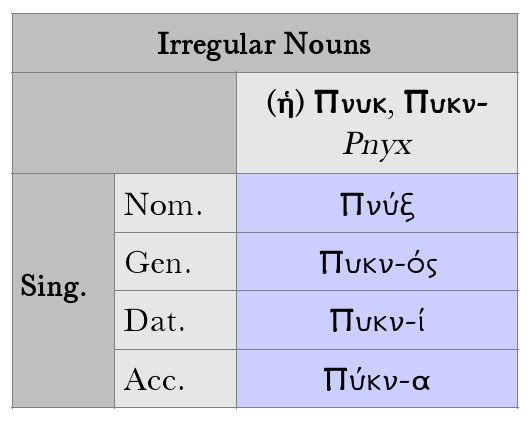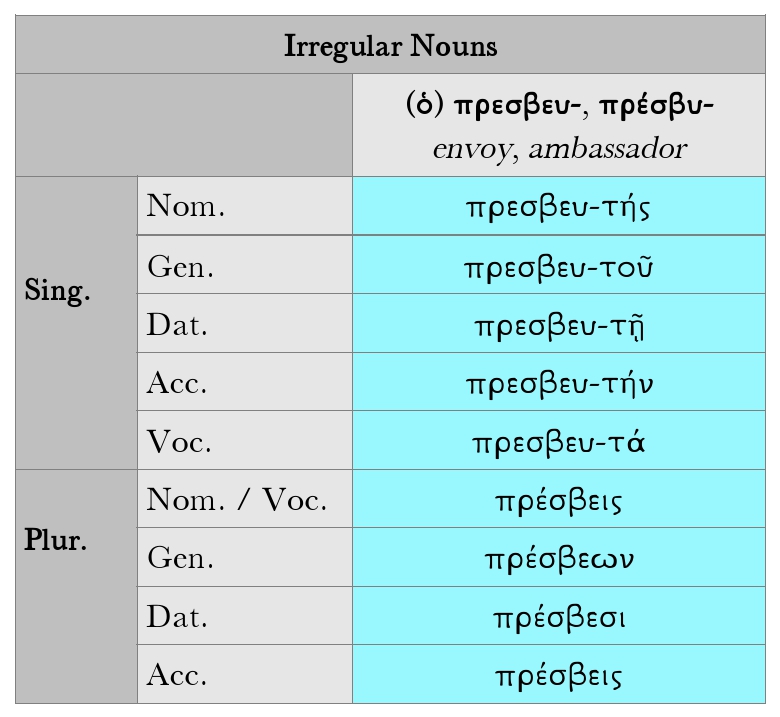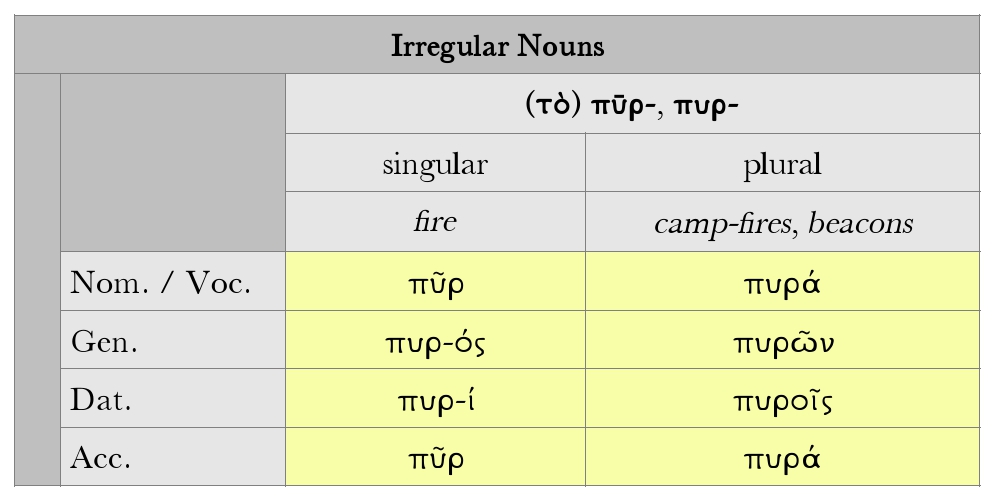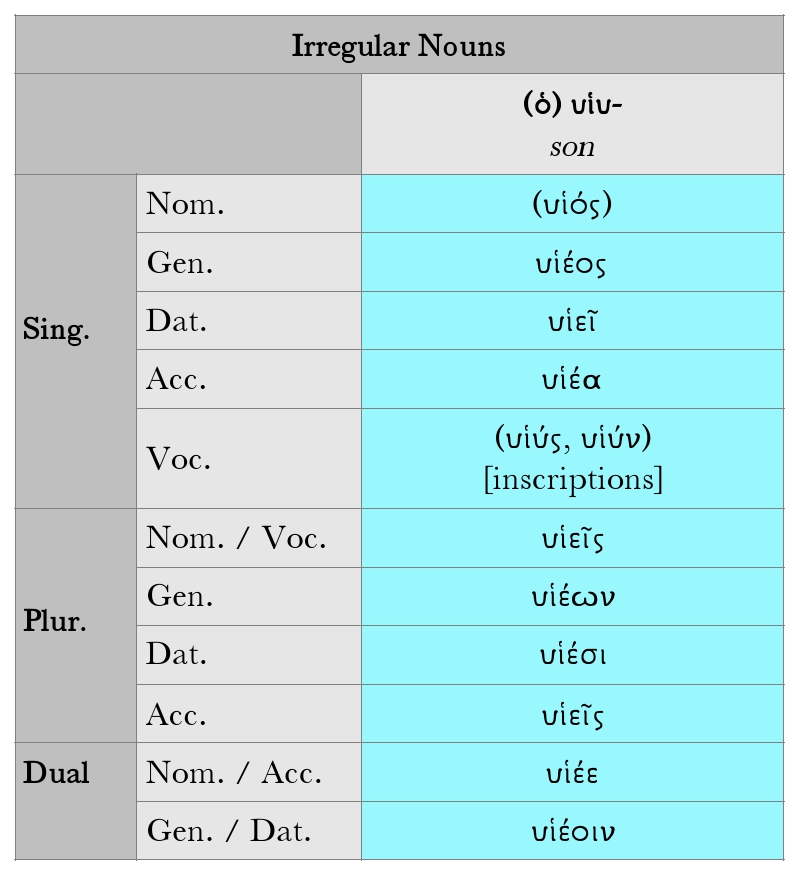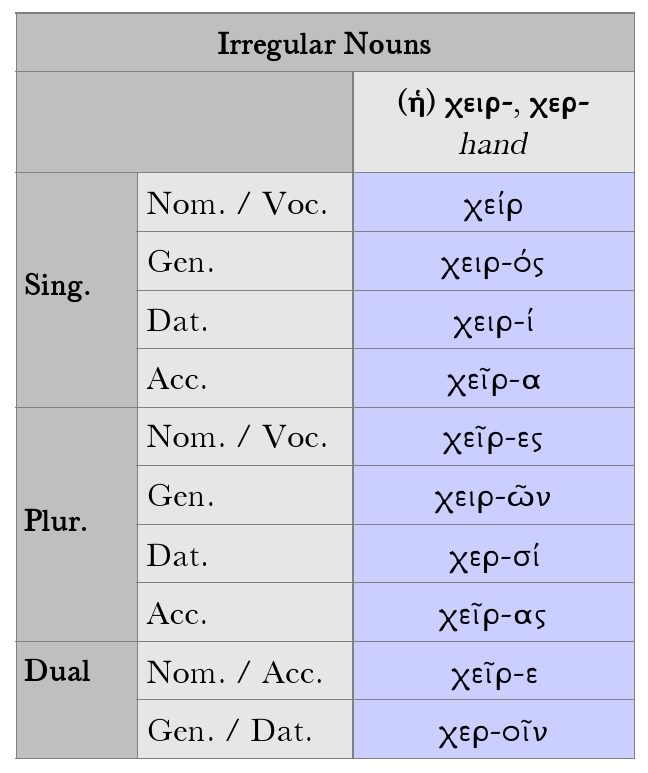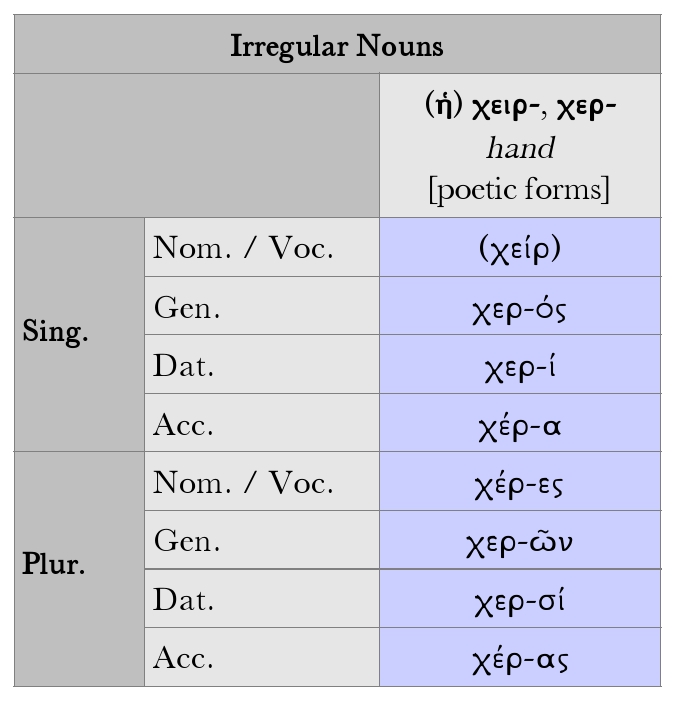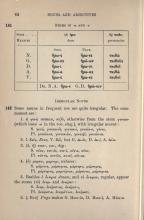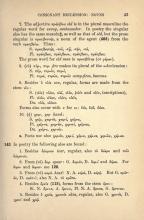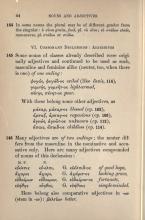142. Some nouns in frequent use are quite irregular. The commonest are:
-
ἡ γυνή woman, wife, otherwise from the stem γυναικ- (which loses -κ-in the voc. sing.), with irregular accent.
-
ὁ Ζεύς Zeus
-
(ὁ / ἡ) κυον-, κυν- dog
-
Besides ὁ ὄνειρος (dream), and τὸ ὄνειρον, regular, appear the stems (τὸ) ὀναρ- and ὀνειρατ-
-
ἡ Πνύξ Pnyx makes:
-
The adjective πρέσβυ-ς (οld) is in the plural masculine the regular word for envoy, ambassador. In poetry the singular also has the same meaning, as well as that of old, but the prose singular is πρεσβευτής, a noun of the agent (§ 405) from the verb πρεσβεύω.
The prose word for old man is πρεσβῡ́της (or γέρων).
-
Besides ὁ υἱός (son), regular, forms are made from the stem υἱυ-.
Forms also occur with -υ- for -υι-: ὑός, ὑοῦ, ὑέος.
-
a. Poets use also
143. In poetry the following also are found:
- Besides δάκρυον (tear), regular, also τὸ δάκρυ and τοῖς δάκρυ-σι.
-
From (τὸ) δορ- spear:
Genitive δορ-ός, Dative δορ-ί and δόρει. For δορυ- and δορατ- see § 120.
-
From (τὸ) καρᾱ- head:
Nominative / Accusative κάρᾱ, Dative κάρᾳ.
But Genitive κρᾱτ-ός, Dative κρᾱτ-ί; also Nominative / Accusative τὸ κρᾶτα. -
Besides ὄρνῑς (§ 115), forms from the stem ὀρνι-:
Singular Nominative ὄρνι-ς, Accusative ὅρνι-ν,
Plural Nominative / Accusative ὄρνεις, Genitive ὄρνε-ων. - Besides ὁ χρώς, χρωτός (skin), regular, also Genitive χρο-ός, Dative χρο-ί and χρῷ.
144. In some nouns the plural may be of different gender from the singular.
ὁ σῖτος (grain, food), pl. τὰ σῖτα
τὸ στάδιον (stade, race-course), pl. στάδιοι οr στάδια.

